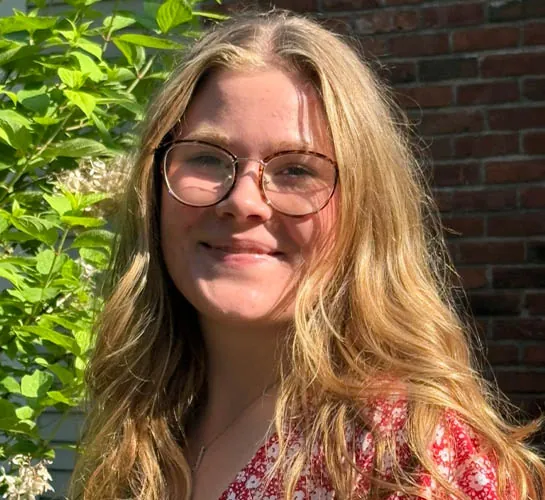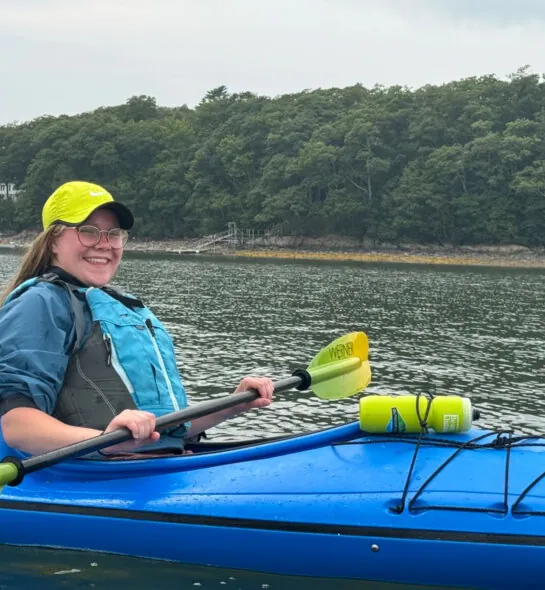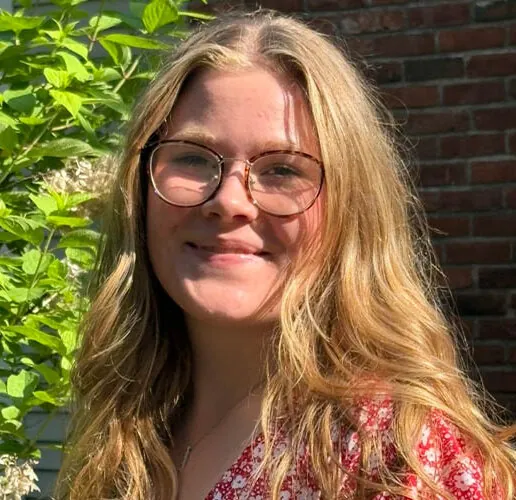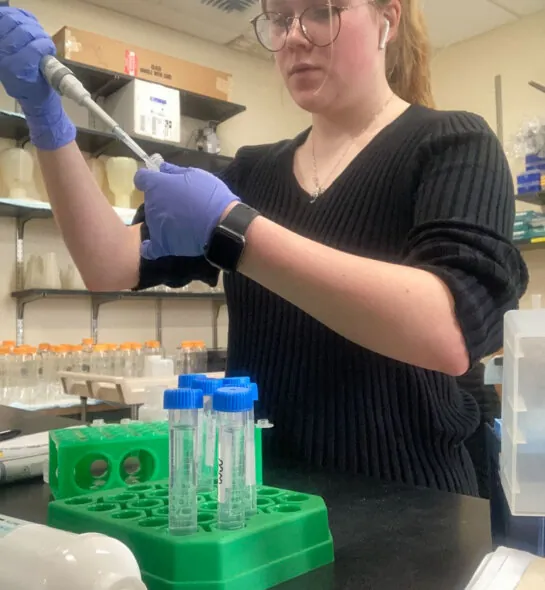Deeper Dive
I became aware of the atrocities of plastic pollution when I was gifted a 4Ocean bracelet made out of recycled ocean plastic by my grandmother. I researched the company and the devastating impact of plastic pollution, and that day I found not only a project topic but also a new purpose: to alleviate the suffering caused by plastic pollution.
For my project, I genetically modified an enzyme called cutinase, enlarging its active site to better fit long plastic polymer chains and speed up the degradation process. Within 24 hours, the plastic is broken down into the original chemicals that formed it: two highly toxic substances, ethylene glycol and terephthalic acid. In the second phase of my research, I used a naturally occurring microalgae strain to treat these toxic compounds. The microalgae consume the carbon atoms in the compounds as food, converting the remaining molecules into biomass that is nontoxic and can be used as a fertilizing material. Because the reaction takes place in a liquid broth, the broth can be filtered to produce a source of drinking water. These microbes are inexpensive to replicate, making this process an affordable yet effective treatment for large amounts of plastic waste. The materials synthesized could rejuvenate affected communities by giving them access to key resources for growth and development while also cleaning up their local living spaces.
My hope for this project is that it will benefit developing communities that lack the infrastructure to manage the large amounts of plastic waste polluting their environments. At this point, especially in the countries most affected by plastic pollution, getting rid of the plastic is not enough; for affected people to fully recover, the plastic must be converted into something useful and healthy for the environment. By removing plastics, this process generates opportunity in the form of increased land space, improved human health, and a healthier planet. Fertilizer generated through this process can be implemented directly into communities to support farms and agriculture. The absence of plastic will prevent accidental incineration of the material, improving air quality. Plastic can also be removed from waterways, allowing crucial irrigation systems to flow once again. A healthier planet, free from plastic waste, can better support humans as we face other pressing issues such as overpopulation and climate change.



